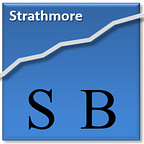Coding to Chaff: How Francis Mugecha is forging his way into the Energy Sector
Francis Mugecha is a founder and proprietor of Chaff Energy, engaged in production of clean, eco-friendly sources of energy and fuel. He has a goal of ensuring households have an alternative to charcoal use which is wasteful and increases pollution. He is a soft-spoken, ambitious and generous individual with an eye for innovation
The Entrepreneur
My background is in IT. I had been a programmer for a considerable amount of time but I however noticed that the IT space was crowded and since I wasn’t willing to fight for my space, I decided to venture into a more lucrative sector, less tapped into and with support from various stakeholders.
The solution
As a problem solver, I identified one key issue facing the country. About 70% of the Kenyan population is using biomass energy. A bulk of them has been using environmentally unfriendly and quite inefficient charcoal. Yet others opt for biogas, which is in turn unavailable to those without livestock. At the same time, tonnes and tonnes of waste from sawdust, rice & coconut husks and maize cobs were being overlooked as a source of fuel.
Chaff Energy was therefore founded, with two revenue streams:
· processing of fuel from sawdust, rice & coconut husks and maize cobs, and
· selling of cook stoves.
Users would then be able to cook with the fuel because an alternative in the market did not exist.
The Journey
I was clueless at the start; jumping from IT into renewable energy was an almost impossible task. I was lucky to get into Kenya Climate Innovation Centre. KCIC was able to provide me with technical support required in actualizing the product. Then they connected me with Energy for Impact, from whom I got funding to develop a prototype for my product and test it in the market.
The Stumbling Block
My idea was to initially sell cook stoves parallel to the processed fuel, then eventually move exclusively into processing fuel. But this proved to be a daunting task. My cook stoves were extremely expensive for the target market, and marketing the product was also challenging. It is quite difficult trying to convince individuals to shift to a totally new product, if they have never heard of it before. Changing their mindset from the traditional mode of cooking was problematic, even though my product was superior, efficient, clean and cheaper in the long-run as compared to most alternatives.
The Realization
I needed a reevaluation of my strategy. Was my product too early into the market? Should I target a different market? How do I create demand for my product? At the same time, should I focus on processing fuel or manufacturing cook stoves? If the product eventually takes off, do I have the capacity and systems in place to ensure the business is sustainable?
To help with these issues, KCIC recommended that I join Advanced Entrepreneurship Program by ISBI at Strathmore Business School.
The Eye Opener
From the first module, I realized that time management in any project is key. I had been spending most of my time working on day-to-day operational activities rather than creating systems that would enable the business to run independently of my presence there. I learnt that as a manager, my time is productively spent on evaluating strategic issues.
I also needed a proper business plan to guide launching this new product. Without a business plan, I was working all over the place with no precise direction. Everything was a priority. I ended up trying to do everything at once, and as time progressed, there was little I had achieved.
The Long-run Objective
After releasing my product, I will be in search of an investor, because fuel processing requires an intensive initial cash outlay. I will also need a strategic partner who will be able to guide me on certain decisions. With only IT as my background, certain talent gaps are evident that I will need to fill in in order to scale up.
Another lesson I learnt at ISBI @ Strathmore was that to attract investors a business must be much more than just a profitable product. I need proper systems in place, I need a capable team with a sound track record, I need up-to-date financial records; in short, I need to clean up my business on all fronts.
I also got focus. When looking for funds, you need to understand clearly how you are going to use the investment from begin on. Now I have a clear idea on how to utilize the funds effectively. I need to invest in a team and additional assets to build my capacity.
Conclusion
Next to the 12 class modules, ISBI @ Strathmore offers a choice of an add-on: Coaching, Mentoring or Consulting. I chose Mentoring, because I need help to finalize my business plan. I still have a few points of concern, especially on financial performance projections and strategy. I am certain, ISBI’s professional advice on these aspects would be very valuable. The course generally has been an eye opener for me and, I am sure, for other ISBI alumni. I would definitely recommend it to entrepreneurs like myself.
Join the last intake this year, starting on Tuesday 13 November. More information here.
